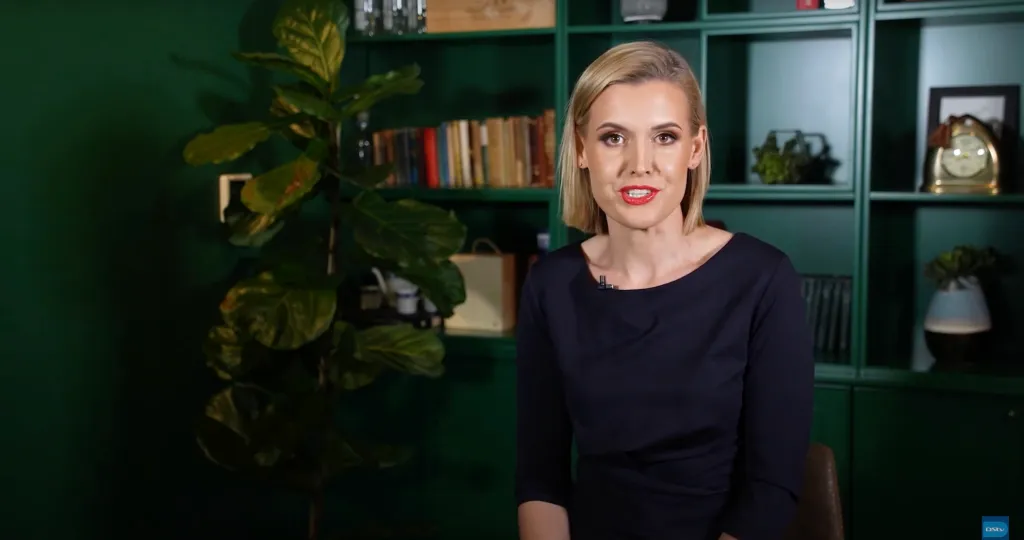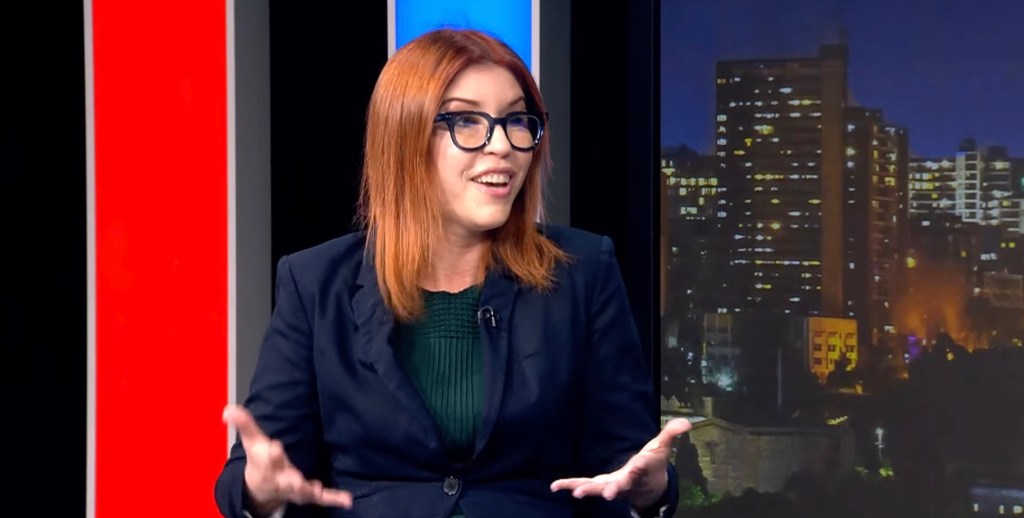Lusaka, August 14, 2025—When a South African solar panel company last month dropped its legal battle over a gag order preventing journalist Bongani Hans from reporting on allegations of misleading clients, Hans told the Committee to Protect Journalists that he saw it as “a victory for media and press freedom.”
But for Hans and others in the country’s journalism community, the win was bittersweet.
South African press freedom advocates had hoped the ARTSolar case would enable the court to provide clear directives on what many see as a disturbing trend: attempts to use gag orders against journalists and activists as a form of pre-publication censorship in a country typically seen as a regional beacon of press freedom.
CPJ has spoken to journalists in at least six other recent cases where officials and private citizens have turned to South Africa’s courts seeking prior restraint of reporting – sometimes by using protection orders originally intended to help victims of domestic violence.
The South African cases come against a backdrop of growing global concern over vexatious lawsuits known as Strategic Lawsuits Against Public Participation, increasingly used to intimidate or silence journalists and activists around the world.
South African cases investigated by CPJ include the following:
Gagged for four years
Freelance reporter Thomo Nkgadima is barred by a court order from “insulting” or tarnishing a local government official in “any form of media in any manner” until November 2027. The order, reviewed by CPJ, was issued in 2023 after Mampuruburu Machubeng, a volunteer at Limpopo province’s Tubatse municipality, accused the journalist of harassment.
Nkgadima told CPJ the complaint came after he contacted Machubeng for comment while reporting on stalled hospital construction. Machubeng told CPJ by phone that he obtained the court order to protect himself because Ngkadima “wanted to tarnish my name in his reports.”
Police detained Nkgadima in February 2025 on suspicion of breaching the protection order after he contacted Machubeng for comment about fresh investigations into the hospital project, according to the journalist and police documents. Nkgadima said that although he was released after a day and prosecutors declined to press charges, he considered the arrest “a vexatious attack to intimidate and silence” him. “I will not stop,” he told CPJ. “I love journalism and I will continue to do what I love.”
While none of the other cases have resulted in such lengthy gag orders, other journalists interviewed by CPJ spent weeks or months in uncomfortable limbo before courts dismissed the cases, typically either for lack of evidence or on constitutionally protected free speech grounds.
Press freedom advocates warn that even temporary gag orders could “erode press freedom,” causing a “chilling effect that might make the journalist or their editor think twice about the costs and risks” of their reporting and creating a “template for suppressing the media” in a country where the judiciary has frequently demonstrated its willingness to push back on attacks against the media.
“[T]oday’s minor infringements of press freedom may become much worse in the future if they are not stamped out now,” nonprofit news outlet GroundUp warned in an editorial.
In the cases reviewed by CPJ, applicants sought to gag the press either through interdicts on publication pursuant to defamation suits, or through protection orders originally intended to shield victims of domestic violence by prohibiting potentially harmful behavior or contact.
South Africa’s 2011 Protection from Harassment Act extended the scope of the protection orders to shield anyone who fears harassment. Interim orders can be granted in ex parte hearings without the presence of the alleged aggressor. Anton Harber, a veteran journalist and activist, told CPJ that the ease of this process is abused in suits to silence the press.
Bids to silence alleged medical malpractice

In two separate cases in the last 12 months, two doctors went to court to try to hamper investigations by the Carte Blanche TV magazine program into alleged medical malpractices.
In November 2024, surgeon Soraya Patel filed a harassment suit against Carte Blanche journalist Lourensa Eckard after program crew approached the doctor for comment at a Gauteng Province hospital in connection with their investigations into malpractice allegations. Court documents show Carte Blanche, which airs on the direct broadcast service DStv, sought an interview multiple times before approaching Patel at the hospital to follow up on previously aired episodes of their investigation, which had included Patel’s written responses to earlier questions.
The court issued a notice for the journalist to appear in court and nearly eight months later, on July 9, dismissed the case, affirming that Eckard had acted in the public interest.
In another case, Carte Blanche producer Mart-Marie Faure contacted cardiologist Ntando Peaceman Duze in May for an interview over alleged medical malpractice. On June 6, Duze obtained an interim interdict from a Kwazulu-Natal provincial court to halt the airing of the program.
“It’s sad that the courts are being used to stop us from airing stories that are in the public interest,” Faure told CPJ, adding that this was deterring journalists from reporting on sensitive issues.
That interim interdict was lifted on July 21, when the court ruled that Carte Blanche’s public interest journalism warranted “stronger constitutional protections” than Duze’s claims of reputational harm and warned that unjustified prior restraint of the media “would undermine the essential role of the media in a democratic society.”
Reached by phone, Duze declined to comment. Patel did not respond to CPJ’s emailed queries.
Magistrate seeks orders against journalists

On September 30, 2024, Mossel Bay magistrate Ezra Morrison obtained an interim protection order against News24’s journalist Karyn Maughan and then editor Kelly Anderson, over a report on Morrison’s handling of a teenage rape case, according to news reports and court documents reviewed by CPJ.
Morrison claimed the reporting harmed her emotionally and psychologically and threatened her safety, the documents said. The order barred both journalists from “contacting the magistrate” or “publishing untrue and inaccurate statements, photos,” or her “details.”
Morrison later filed a complaint of crimen injuria, the criminal offense of “impairing the dignity or privacy of another person,” over the same reporting. Both cases were later withdrawn, Maughan’s lawyer Charl du Plessis said.
Morrison did not reply to CPJ’s emailed queries.
‘The Running Mann’
Stuart Mann, a runner who covers long-distance races on his The Running Mann website, was sued for defamation in April by the nonprofit organizers of the Two Oceans Marathon and its board chair, Antoinette Cavanagh, following a series of reports alleging mismanagement of the annual race. The suit sought a retraction, apology, and a court order barring Mann from publishing or sharing similar allegations in the future.
The Gauteng High Court dismissed the case on June 16, saying that the court papers were “chaotic and vague” and that Cavanagh and the organization had failed to demonstrate defamation. Mann told CPJ that the process was emotionally draining and that he stopped writing about Two Oceans during the case.
In a July 17 email, the Two Oceans Marathon told CPJ, “We reserve our rights to pursue the matter further.” Cavanagh has since stepped down and Mann has been appointed as an interim board member.
The former chaplain and his wife
In December 2024, Vukile Mehana, a former chaplain with the ruling African National Congress party, and his wife, Naledi Mbude-Mehana, an Education Department deputy director general , opened a case of harassment and defamation against Sunday Times investigative reporter Thanduxolo Jika. Jika had reported that the couple was under investigation by the Hawks, a police unit that investigates corruption, for alleged irregularities in a government contract.
On June 4, Jika filed a complaint against the investigating officer for “recklessly” opening a defamation case – South Africa decriminalized defamation in 2024 – and suggesting that this officer was “serving the interests of Dr Mbude-Mehana rather than upholding the law.”
“There’s a rise in serious abuse of power by politically connected individuals who are opening senseless criminal cases against journalists to harass and intimidate them,” Jika told CPJ. Sunday Times editor Makhudu Sefara described the case as “a despicable attempt to muzzle our freedom to report news without intimidation.”
The Hawks’ spokesperson Nomthandazo Mbambo told CPJ that the couple remained under investigation. Mehana did not respond to CPJ’s phone calls or a query sent via messaging app. Midrand Police Station Commander Brigadier Molefi David Tsotso did not respond to CPJ’s calls or texts.
On August 12, Jika told CPJ the prosecutors had dropped the case against him.
Editor’s note: CPJ Regional Director Angela Quintal is a board member of the nonprofit news outlet GroundUp.
This content originally appeared on Committee to Protect Journalists and was authored by Joan Chirwa.